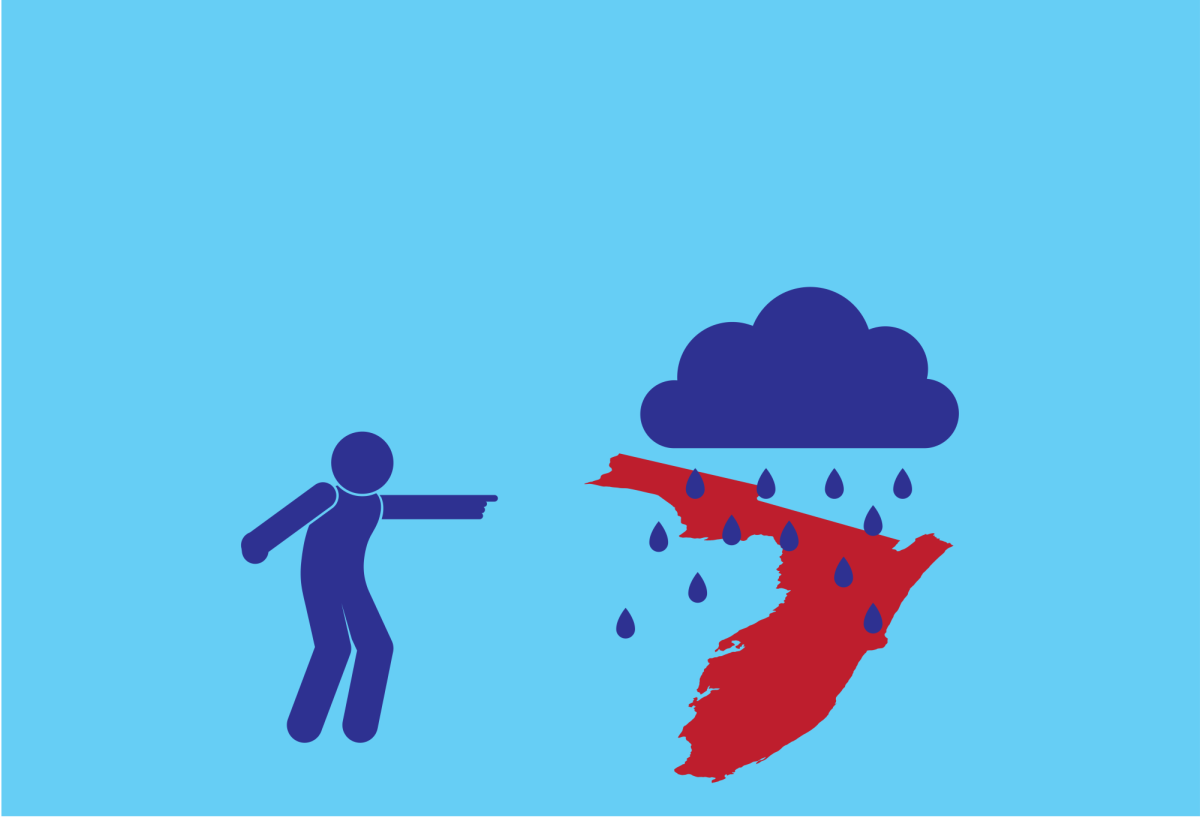On Sept. 30, 2024, the University of Kentucky released a statement addressing “a post circulating that contains offensive statements,” from an individual associated with the university.
This individual was later identified as Betsy Packard. A former teaching assistant at the university, who in response to Hurricane Helene, posed the question of whether or not those in red states were affected for a justifiable reason.
Packard’s controversial post reads, “Hurricane Helene…What if GOD is punishing MAGA populations for their hate and hypocrisy? Works for me!”
While Packard went on to claim this statement didn’t reflect her beliefs about the hurricane, and was instead poking fun at Republican politicians who she says have in the past “attributed disaster to divine punishment,” she still received significant backlash.
Packard’s statement isn’t the first of its kind. Rhetoric that implies people deserve to struggle because of their political beliefs is something many of us have seen before. However, the frequency of these statements does not make them any less troubling, and the hypocrisy behind them is more than apparent.
For instance, Packard is outspokenly liberal, but the statement she made goes against many of the core tenets of her ideology. Liberalism claims to be about fighting for equity in struggling communities, and showing compassion toward those who are suffering. Low-income families are going to be disproportionately affected in the aftermath of Hurricanes Helene and Milton, according to the Brookings Institution. These are the families that liberals are supposed to advocate for and uplift.
Packard’s comments are not an isolated incident. She isn’t some sort of “bad egg” who posted a particularly hateful take. Rhetoric like the kind she uses is, in my opinion, one of the most harmful to spread.
The belief that some areas deserve less or deserve to struggle because of their political makeup isn’t a value of liberalism or conservatism. This idea isn’t a part of politics at all, it’s simply a divisive take that keeps us from having productive, meaningful conversations. It’s a reductive perspective that paints areas with a single identity, ignoring the diversity within that place.
Not only that, but to imply that someone deserves for their livelihoods to be washed away by a hurricane simply because of their political beliefs, is abhorrent and detestable. People don’t deserve to die or have everything stripped of them because they have a different belief system. That very premise not only goes against many political ideologies, but also goes against basic democratic values.
This viewpoint also does nothing but further polarize our political atmosphere. It adds unneeded, unwarranted adversity. This division can make us forget what we are all fighting for in the first place. It’s this culture of hostility that likely contributed to Packard’s take. She sidelined the communities she’s supposed to support in an effort to attack “MAGA populations”, as Packard put it in her previously mentioned tweet.
When politics becomes a game of “us vs. them,” the people who suffer the most are those who each side allegedly cares about. I don’t make these points to harp on Packard, or to put myself on a moral high ground. Instead, I think learning from these situations and taking the time to better understand the implications of harmful rhetoric is the end goal of it all.
Regardless of political parties or beliefs, compassion needs to be the main focus instead of being right in an argument. Without compassion, families in need of hurricane relief will continue to be pushed to the side and be reduced to a talking point for political debate. We could be much more productive helping those in need if we put our own grievances aside, and instead prioritize victims’ needs.

































































































































































